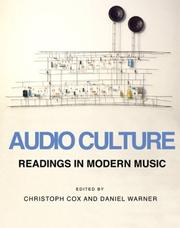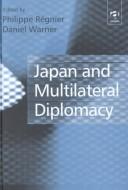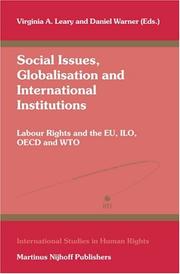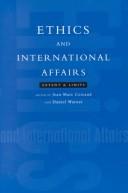Book
ISBN: 9781501318351 9781501318368 Year: 2017 Publisher: New York : Bloomsbury Academic,
Abstract | Keywords | Export | Availability | Bookmark
 Loading...
Loading...Choose an application
- Reference Manager
- EndNote
- RefWorks (Direct export to RefWorks)
The groundbreaking Audio Culture: Readings in Modern Music (Continuum; September 2004; paperback original) maps the aural and discursive terrain of vanguard music today. Rather than offering a history of contemporary music, Audio Culture traces the genealogy of current musical practices and theoretical concerns, drawing lines of connection between recent musical production and earlier moments of sonic experimentation. It aims to foreground the various rewirings of musical composition and performance that have taken place in the past few decades and to provide a critical and theoretical language for this new audio culture.This new and expanded edition of the Audio Culture contains twenty-five additional essays, including four newly-commissioned pieces. Taken as a whole, the book explores the interconnections among such forms as minimalism, indeterminacy, musique concrète, free improvisation, experimental music, avant-rock, dub reggae, ambient music, hip hop, and techno via writings by philosophers, cultural theorists, and composers. Instead of focusing on some "crossover" between "high art" and "popular culture," Audio Culture takes all these musics as experimental practices on par with, and linked to, one another. While cultural studies has tended to look at music (primarily popular music) from a sociological perspective, the concern here is philosophical, musical, and historical.Audio Culture includes writing by some of the most important musical thinkers of the past half-century, among them John Cage, Brian Eno, Ornette Coleman, Pauline Oliveros, Maryanne Amacher, Glenn Gould, Umberto Eco, Jacques Attali, Simon Reynolds, Eliane Radigue, David Toop, John Zorn, Karlheinz Stockhausen, and many others. Each essay has its own short introduction, helping the reader to place the essay within musical, historical, and conceptual contexts, and the volume concludes with a glossary, a timeline, and an extensive discography.

ISBN: 9780826416155 0826416151 0826416144 0826416152 9780826416148 Year: 2004 Publisher: New York: Continuum,
Abstract | Keywords | Export | Availability | Bookmark
 Loading...
Loading...Choose an application
- Reference Manager
- EndNote
- RefWorks (Direct export to RefWorks)

ISBN: 0754615359 Year: 2001 Publisher: Aldershot : Ashgate,
Abstract | Keywords | Export | Availability | Bookmark
 Loading...
Loading...Choose an application
- Reference Manager
- EndNote
- RefWorks (Direct export to RefWorks)
Book
ISBN: 9004636900 9789004636903 Year: 1996 Publisher: Boston : BRILL,
Abstract | Keywords | Export | Availability | Bookmark
 Loading...
Loading...Choose an application
- Reference Manager
- EndNote
- RefWorks (Direct export to RefWorks)
This book, edited by Maurice Bertrand and Daniel Warner, explores the proposal for a new charter for a worldwide organization as the United Nations marks its 50th anniversary. It examines the need to re-envision global institutions in response to rapid international changes. Through a series of discussions, commentaries, and proposals, the book addresses the shortcomings of the existing UN framework and considers the feasibility and necessity of establishing a new global organization. Contributors include experts and scholars who provide diverse perspectives on international relations, security, economic development, and environmental issues. The book aims to stimulate debate and contribute to ongoing research on reforming international systems.
Book
Year: 1694 Publisher: In the Savoy [London] : Printed by E. Jones; and sold by the author at his house at Ewelm in Oxfordshire; by Henry Playford at his shop near the church in the Innter-Temple, London; and by Anthony Boys at his shop in St. Albans in Hertfordshire,
Abstract | Keywords | Export | Availability | Bookmark
 Loading...
Loading...Choose an application
- Reference Manager
- EndNote
- RefWorks (Direct export to RefWorks)
eebo-0076
Psalms (Music) --- Psalters --- Bible. --- Paraphrases, English

ISBN: 9004145796 9786612396434 1282396439 9047427378 9789004145795 Year: 2006 Volume: 84 Publisher: Leiden: Nijhoff, Brill,
Abstract | Keywords | Export | Availability | Bookmark
 Loading...
Loading...Choose an application
- Reference Manager
- EndNote
- RefWorks (Direct export to RefWorks)
Concern over the relationship between human rights, social justice and international trade competitiveness has led to the inclusion of the issue of the rights of workers in the agenda of leading international organizations. International labour issues once seen as a monopoly preoccupation of the ILO (International Labour Organization) have now become important issues in other international organizations, as well as within regional trading blocs. This original study examines the extent to which international labour issues have become issue of concern within the European Union, the ILO, the OECD (Organisation for Economic Cooperation and Development), and the WTO (World Trade Organization). The internationally known authors of this book have been long-time observers of the work of international organizations on labour rights and globalisation and have been leaders in the effort to bring issue of social justice onto the international agenda. Social Issues, Globalisation and International Institutions: Labour Rights and the EU, ILO, OECD and WTO is the culmination of a project of the Program for the Study of International Organization(s) (PSIO) at the Graduate Institute of Institute of International Studies, Geneva, Switzerland (HEI), supported by a grant from the Ford Foundation. With contributions by Philip Alston, Steve Charnovitz, Andrew Clapham, Robert Howse, Brian A. Langille and James Salzman.
Labor policy --- Human rights --- Employee rights --- International agencies --- Labor laws and legislation, International --- Travail --- Droits de l'homme (Droit international) --- Personnel --- Organisations internationales --- International cooperation --- Politique gouvernementale --- Coopération internationale --- Droits --- Droit international --- Employee rights. --- Human rights. --- International agencies. --- Labor laws and legislation, International. --- International cooperation. --- #SBIB:327.1H10 --- #SBIB:327.7H01 --- International labor laws and legislation --- International law --- Labor --- State and labor --- Economic policy --- Associations, International --- IGOs (Intergovernmental organizations) --- Institutions, International --- Intergovernmental organizations --- International administration --- International associations --- International governmental organizations --- International institutions --- International organizations --- International unions --- Organizations, International --- Specialized agencies of the United Nations --- Interorganizational relations --- Non-state actors (International relations) --- International organization --- Basic rights --- Civil rights (International law) --- Rights, Human --- Rights of man --- Human security --- Transitional justice --- Truth commissions --- Employees --- Labor rights --- Rights of employees --- Civil rights --- Labor laws and legislation --- Employee rules --- Internationale betrekkingen: theorieën --- Grondslagen, principes, evolutie internationale gemeenschap --- Government policy --- Law and legislation --- Inter-governmental organizations --- Labor policy - International cooperation --- Globalization. --- Labor laws and legislation. --- Labour law. --- Social justice.

ISBN: 9280810529 0585434115 9780585434117 9789280810523 1281253197 9781281253194 9786611253196 661125319X 9280870181 9789280870183 Year: 2001 Publisher: Tokyo New York United Nations University Press
Abstract | Keywords | Export | Availability | Bookmark
 Loading...
Loading...Choose an application
- Reference Manager
- EndNote
- RefWorks (Direct export to RefWorks)
Examines the extent and limits of contemporary international ethics and looks at the ways in which the international community has responded to conflicts. The contributors explore how an understanding of the ethical may be developed from the articulation of dilemmas encountered.
International relations --- #SBIB:032.GIFT --- #SBIB:327.1H10 --- Moral and ethical aspects --- Internationale betrekkingen: theorieën --- Ethics --- Deontology --- Ethics, Primitive --- Ethology --- Moral philosophy --- Morality --- Morals --- Philosophy, Moral --- Science, Moral --- Philosophy --- Values --- Moral and ethical aspects. --- Political aspects.
Book
Year: 1969 Publisher: New York-Toronto-London McGraw-Hill
Abstract | Keywords | Export | Availability | Bookmark
 Loading...
Loading...Choose an application
- Reference Manager
- EndNote
- RefWorks (Direct export to RefWorks)
Book
ISBN: 0710304919 Year: 1995 Volume: *2 Publisher: London New York Kegan Paul International
Abstract | Keywords | Export | Availability | Bookmark
 Loading...
Loading...Choose an application
- Reference Manager
- EndNote
- RefWorks (Direct export to RefWorks)
Citizenship --- Nationalité --- Citoyenneté --- -Birthright citizenship --- Citizenship (International law) --- National citizenship --- Nationality (Citizenship) --- Political science --- Public law --- Allegiance --- Civics --- Domicile --- Political rights --- Law and legislation --- -Citizenship --- Nationalité --- Citoyenneté --- Birthright citizenship --- Europe [Eastern ] --- Citizenship - Europe, Eastern.
Book
Abstract | Keywords | Export | Availability | Bookmark
 Loading...
Loading...Choose an application
- Reference Manager
- EndNote
- RefWorks (Direct export to RefWorks)

 Search
Search Feedback
Feedback About UniCat
About UniCat  Help
Help News
News